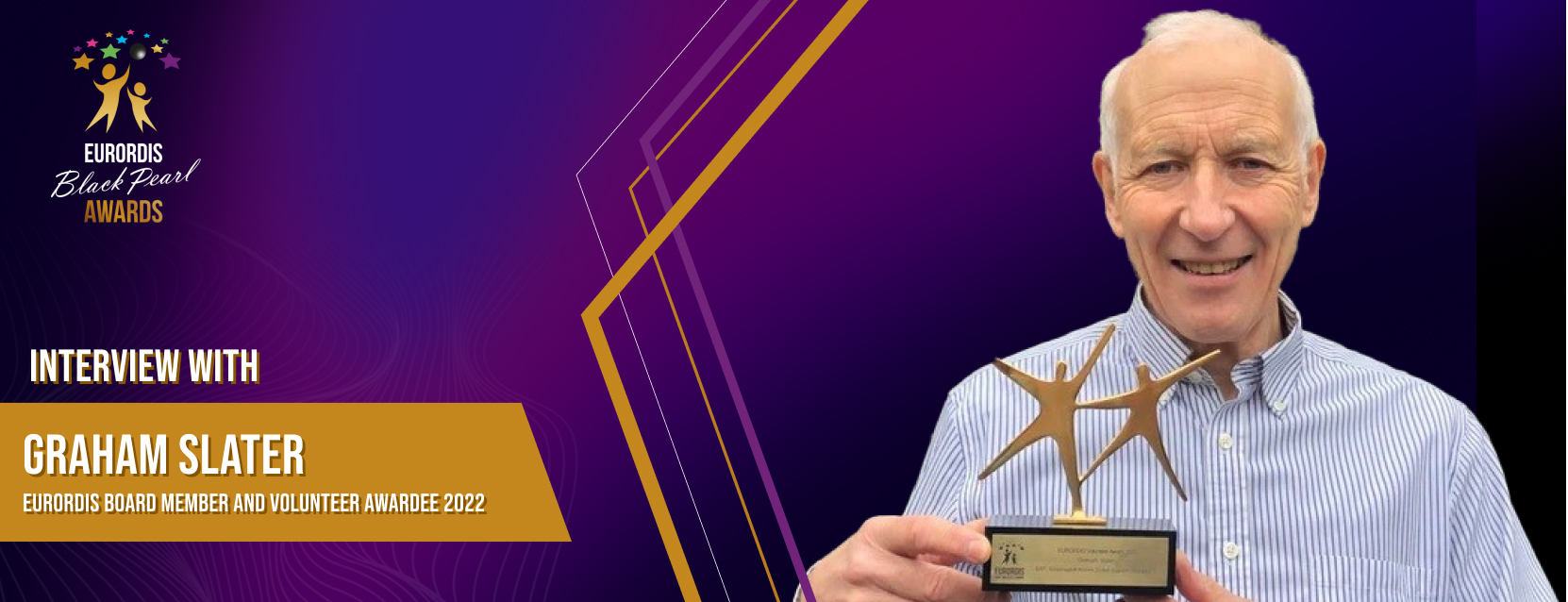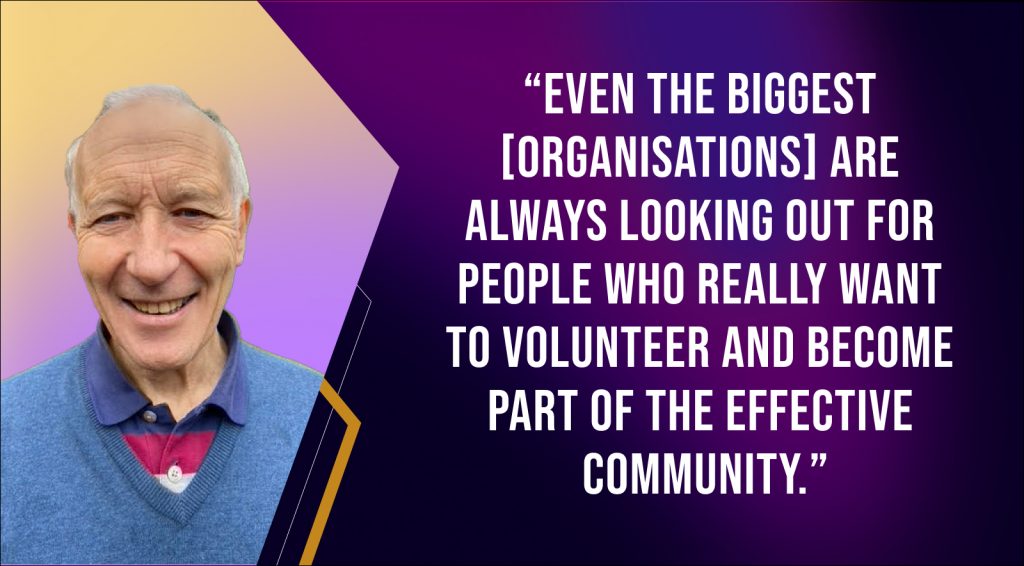From Awardee to Board Member: An Interview with Graham Slater
July 2023As we look towards the 2024 edition of the Black Pearl Awards, we have been catching up with some of our past Black Pearl Awardees. In an interview with Graham Slater, elected to the EURORDIS Board of Directors in May, we discuss his journey into advocacy, the development of effective holistic care pathways, and the importance of volunteers in the rare disease community.

As one of the earliest survivors of esophageal atresia, Graham Slater could be forgiven for opting for a quiet life as he neared his retirement. Instead, he decided to run a marathon in order to raise money for TOFS, a UK patient group offering long-term support to people born with his condition. Shortly afterwards, he was asked to become a trustee of the charity, taking a leading role in engaging with clinicians and researchers internationally.
This “whirlwind” journey into advocacy did not stop there. In 2011, Graham spearheaded the founding of EAT (Esophageal ATresia Global Support Groups e.V.), and in 2017, he became the lead patient advocate in ERN-ERNICA.
“I would always stress my belief that the biggest challenges faced by the European Reference Networks is implementing the good working practices (guidelines, revised care pathways etc..) and integrating the ERNs into national health systems.”
At the heart of his advocacy efforts is his goal to ensure that patients are provided with lifelong holistic care and support.
Patients “should never be fully left alone,” insists Graham. “Because the truth is that symptoms can reappear, morbidity can reappear later in life.”
“They should go through a transition programme, part of which is about educating them – we often find that they’re not very familiar with their own condition – and in an ideal world, care pathways through adulthood should be established.”
“Because the truth is – and this is an issue for many similar congenital malformations – there are relatively few adult clinicians who are familiar with the condition, and there are almost no hospitals that provide specialist clinics for follow-up.”
Esophageal atresia is a congenital malformation that affects around 1-5 per 10,000 births worldwide, and it leads to an inability to swallow, among other symptoms. Diagnosis can be a very worrying time for families, and survivors can experience ongoing morbidities associated with the condition. For Graham, support groups are important lifelines, not only providing guidance and helping new parents to feel less alone, but also serving as a platform for volunteers to become actively involved in rare disease advocacy.

Graham’s volunteer work further reinforced his belief in the importance of effective holistic care pathways being available to patients throughout all stages of life. In 2021, he co-authored a TOFS position paper about ensuring a holistic model for the treatment of his condition.
The holistic care approach aims to tackle every aspect of the health, social and everyday needs of people living with a rare disease and their families. This includes mental health, which is often inextricably linked with physical health. Those living with a rare disease are more likely to struggle with their mental wellbeing compared to the general population.
“We established last year, and we intend to continue, an ERNICA transversal project on quality of life and mental health, which will work across the whole clinical scope of ERNICA.”
“One of the areas that has been focused on by one of the key researchers in that area is the impact on families, and the need to consider parents and siblings.”
“I think it’s important that we advocate for mental health and quality of life to be a consideration in all effective aftercare and follow-up programmes.”
“Clinical psychology is one of the disciplines that should be included in an established multidisciplinary approach.”
Following his recent election to our Board of Directors, Graham affirms that he is looking forward to making a “positive contribution” in his work with EURORDIS. “This is an opportunity to bring experience to the Board in the area that I know best, which is the congenital malformations. Some of the issues faced in that area are different from those related to acquired diseases,” he highlights.
Last year, Graham was presented with a Volunteer Award for his dedication to the rare disease community and his long-standing commitment to international collaboration. He recalls that it was “a great honour” to receive the award, highlighting that he would encourage people to submit nominations in order to recognise the outstanding contributions that volunteers make, as well as the achievements of people living with a rare disease.
“There are hundreds, if not thousands, of people out there across Europe who are doing work every day, every year. To some extent I felt that I was receiving [the award] on behalf of everybody who is so dedicated to this work that we do collectively.”
“It became very apparent to me that as a rather more senior survivor of my condition, without thinking about it you become inspirational because parents see what the future can be.”
“The truth is that while I have been very lucky, I am not fully morbidity-free. And this is one of the reasons why in our organisations, we always try to champion what people are doing, whatever their limitations, whatever their difficulties.”
Nominations are open for the Black Pearl Awards 2024!
If you know of someone like Graham Slater who deserves to be recognised for their outstanding work in the rare disease community, submit your nomination in just a few minutes!
Madison James, Communications Intern
